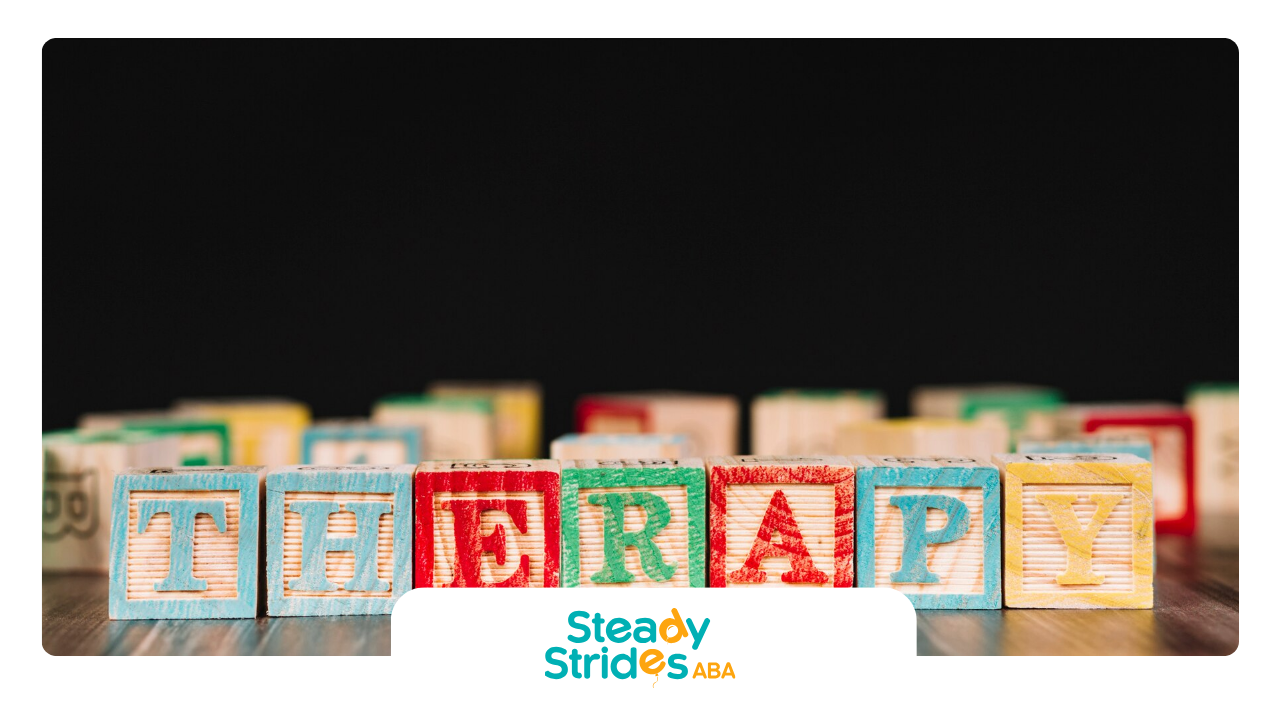Establishing healthy habits is important for everyone, but for individuals with autism spectrum disorder (ASD), routines and wellness practices can play a crucial role in daily functioning, emotional regulation, and long-term success.
Whether you’re a parent, caregiver, teacher, or an autistic adult looking to improve your day-to-day life, developing healthy habits can help create a more predictable, manageable environment. In this blog, we’ll explore the key areas of wellness—nutrition, sleep, hygiene, physical activity, social skills, and emotional regulation—and how healthy habits can be built and maintained for individuals with autism.
Why Are Healthy Habits Important for Individuals with Autism?
Autism is a neurodevelopmental condition that can affect communication, behavior, and sensory processing. While each person on the spectrum is unique, many benefit from routines and structure to reduce stress, manage transitions, and increase independence.
Healthy habits can:
- Provide predictability and reduce anxiety
- Improve physical health
- Support emotional regulation
- Encourage social interaction
- Build independence
- Foster self-confidence
Let’s break down the different categories of healthy habits and how they can be encouraged.
1. Healthy Eating Habits
Why It Matters:
Nutrition plays a significant role in energy levels, mood, behavior, and concentration. However, many individuals with autism may have food sensitivities, aversions to textures, or restricted eating patterns.
Tips for Building Healthy Eating Habits:
- Create structured meal times to build routine.
- Introduce new foods gradually—one at a time and alongside preferred foods.
- Use visual food charts to help children understand and anticipate meals.
- Get children involved in meal preparation to build familiarity and interest.
- Be patient. It can take multiple exposures for someone to accept a new food.
Focus on:
- Whole fruits and vegetables
- Lean proteins
- Complex carbohydrates (like brown rice, oats)
- Hydration—plenty of water throughout the day
If sensory sensitivities are strong, consult a nutritionist or occupational therapist for support in creating an individualized plan.
2. Consistent Sleep Routines
Why It Matters:
Sleep challenges are common in autism, including trouble falling asleep, staying asleep, or waking early. Poor sleep can lead to increased irritability, hyperactivity, and difficulty focusing.
Healthy Sleep Habits to Try:
- Create a consistent bedtime and wake-up time, even on weekends.
- Build a relaxing bedtime routine (bath, books, calming music).
- Use visual schedules to show what happens before bed.
- Avoid screen time at least an hour before bedtime.
- Keep the bedroom environment cool, quiet, and dimly lit.
A weighted blanket, white noise machine, or lavender-scented diffuser can also be soothing for those with sensory sensitivities.
3. Hygiene and Self-Care Skills
Why It Matters:
Daily hygiene—brushing teeth, bathing, dressing, grooming—is essential for health and social integration. But these tasks can be challenging due to sensory issues or executive functioning difficulties.
How to Encourage Good Hygiene Habits:
- Use visual aids (e.g., a step-by-step chart for brushing teeth).
- Break tasks into small, manageable steps.
- Practice routines at the same time each day to build familiarity.
- Choose sensory-friendly products—soft toothbrushes, unscented soaps.
- Reinforce each successful step with positive praise or rewards.
Start small—mastering one routine at a time can lead to greater independence over time.
4. Physical Activity and Movement
Why It Matters:
Exercise helps regulate mood, improve focus, and support physical health. Many individuals with autism benefit from regular movement, but preferences can vary.
Ideas for Incorporating Physical Activity:
- Walks in nature or the neighborhood
- Trampoline or swing time (great for sensory seekers)
- Yoga or stretching for calming and body awareness
- Dance or music movement breaks at home
- Organized sports with low-pressure, supportive teams
Make movement part of the daily routine, even in small doses. The goal is to find enjoyable activities and build them into consistent habits.
5. Social and Communication Habits
Why It Matters:
Building healthy social habits helps individuals with autism feel more connected, confident, and able to navigate group settings like school or work.
How to Build Social Routines:
- Use social stories to explain common situations (e.g., greetings, turn-taking).
- Practice with role-play or scripts at home.
- Encourage peer interaction during playdates or structured group activities.
- Celebrate small victories in communication (eye contact, initiating conversation).
- Work with a speech-language pathologist if needed.
Start with the basics—saying “hi,” making eye contact, or asking questions—and expand as comfort grows.
6. Emotional Regulation Strategies
Why It Matters:
Self-regulation is essential for managing big emotions like frustration, anxiety, or sensory overload. Developing these skills over time can improve behavior and reduce meltdowns.
Habits That Support Emotional Health:
- Teach deep breathing or counting to 10 when upset.
- Practice using calm-down tools like stress balls, fidget toys, or emotion cards.
- Establish a calm space at home where the child can retreat if overwhelmed.
- Use a feelings chart to identify and label emotions.
- Reinforce use of coping strategies with encouragement and praise.
Model these strategies as a caregiver—kids often learn best by watching.
7. Creating and Following Daily Routines
Why It Matters:
Routines offer a sense of stability and help reduce anxiety. For autistic individuals, knowing what to expect next can ease transitions and foster cooperation.
Tips for Building a Healthy Daily Routine:
- Use visual schedules to lay out the day’s events.
- Keep routines consistent—same wake-up, meal, and bedtime every day.
- Use timers to help with transitions between activities.
- Include a mix of structured and free time.
- Be flexible—prepare the individual for changes using advance warnings or transition cues.
The predictability of routines can transform a chaotic day into a manageable one.
8. Technology and Screen Time
Why It Matters:
Technology can be a great learning and communication tool, but excessive screen time may interfere with sleep, social interaction, or physical activity.
Healthy Tech Habits:
- Set clear time limits for devices.
- Schedule screen time during non-critical parts of the day (not before bed).
- Choose educational or interactive apps over passive entertainment.
- Take frequent screen breaks and alternate with physical play.
- Use a visual timer or checklist to help manage expectations.
Balance is key. Technology can be helpful—especially for communication and learning—but should be used with intention.
9. Encouraging Independence
Why It Matters:
Learning to do things independently builds self-esteem and prepares individuals for success in school, work, and life.
How to Build Independence Gradually:
- Start with small tasks (putting on shoes, making a snack).
- Use prompting and fading (offering help, then slowly stepping back).
- Offer choices when possible to build decision-making skills.
- Create checklists or visual task boards for multi-step processes.
- Praise effort, not just results—this builds resilience.
The goal is progress, not perfection. Every new habit learned adds to long-term confidence.
10. Working Together as a Family
Family support plays a major role in building healthy habits. When caregivers and siblings model consistent routines and positive behavior, it reinforces the same for the individual with autism.
Family-Friendly Tips:
- Involve the individual in family meals and chores.
- Celebrate small wins together.
- Use team language (“Let’s do this together!”).
- Have weekly family meetings to go over plans, routines, and changes.
- Maintain open communication between all caregivers and support teams.
Creating a unified approach sets a strong foundation for success.
When to Seek Professional Support
While many healthy habits can be developed at home, some challenges may benefit from the support of professionals. Don’t hesitate to reach out to:
- Behavioral therapists (like ABA providers)
- Speech and occupational therapists
- Nutritionists or sleep specialists
- Pediatricians or developmental doctors
These experts can help assess needs, tailor plans, and offer tools that make habit-building more effective.
Final Thoughts
Healthy habits for autism aren’t just about following a strict set of rules—they’re about building routines and strategies that support the unique needs of each individual. Whether it’s eating nutritious meals, getting restful sleep, practicing hygiene, or learning to self-regulate, these habits create a strong foundation for personal growth and well-being.
Remember, start small. Consistency, patience, and positive reinforcement go a long way in helping habits stick. The journey is different for everyone, but the benefits of creating structure, balance, and wellness routines can be life-changing.
At Steady Strides, we’re passionate about helping individuals with autism reach their fullest potential. Our team of ABA therapy professionals works alongside families to develop customized routines, reinforce healthy habits, and create supportive, consistent environments that promote success at home, in school, and beyond.
Frequently Asked Questions
How do I help my autistic child build a daily routine?
Start with a visual schedule and keep routines consistent each day. Break tasks into small steps, use timers, and provide praise or small rewards for completing routines.
What are some healthy habits to start with?
Start with sleep, nutrition, and hygiene. These core areas can have a big impact and create a base for adding more habits like exercise, emotional regulation, and social routines.
Can ABA therapy help with building healthy habits?
Yes. ABA therapy is highly effective in teaching and reinforcing healthy routines. It uses positive reinforcement and structured techniques to help individuals with autism build and maintain new skills.
Sources:
- https://www.nimh.nih.gov/health/topics/autism-spectrum-disorders-asd
- https://www.autismspeaks.org/autism-nutrition
- https://www.sleepfoundation.org/physical-health/autism-and-sleep
- https://www.autismspeaks.org/sensory-issues
- https://autism.org/wp-content/uploads/2022/03/Emotional-Regulation-March-2022.pdf












